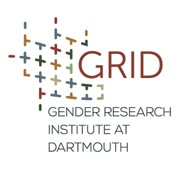Associated Postdoctoral Fellows
Yesenia Barragan
Postdoctoral Fellow in the Society of Fellows, Department of History
 Yesenia Barragan is a historian of race, slavery, and emancipation in Colombia, Afro-Latin America, and the Pacific World. She is currently revising her book manuscript, tentatively titled "The Darkest Place: Slavery and Emancipation on the Colombian Pacific," which is the first detailed study of the gradual abolition of slavery (1821-1852) and the immediate aftermath of emancipation on the Pacific coast of Colombia, the region with the highest concentration of slaves and gold mining center of the former Spanish empire.
Yesenia Barragan is a historian of race, slavery, and emancipation in Colombia, Afro-Latin America, and the Pacific World. She is currently revising her book manuscript, tentatively titled "The Darkest Place: Slavery and Emancipation on the Colombian Pacific," which is the first detailed study of the gradual abolition of slavery (1821-1852) and the immediate aftermath of emancipation on the Pacific coast of Colombia, the region with the highest concentration of slaves and gold mining center of the former Spanish empire.
Yesenia is also a longtime activist and has published several pieces for the Latin American news agency Telesur on Black Lives Matter, the historical memory of slavery in the Americas, Latin@ immigration, and Colombian politics. She is the author of Selling Our Death Masks: Cash-for-Gold in the Age of Austerity (Zero Books, 2014), an experimental historical ethnography of gold and cash-for-gold shops in the wake of the latest economic crisis based on fieldwork in Spain, Greece, and Colombia.
yesenia.barragan@dartmouth.edu
Nathalie Batraville
Postdoctoral Fellow in the Society of Fellows

Nathalie Batraville's Scholarship takes Haiti and the Caribbean as points of departure to analyze gender, class, and racialization in the Black Atlantic. In her dissertation, Poetic Revolution and Political Isolation: Haiti's Literary Avant-Garde, 1957-1971, she explored how poets and novelists developed innovative forms that grew out of an increasing awareness and anxiety regarding the isolation of Haiti's working poor within global capitalism. Her next research project examines how "blackness" functions within existentialist philosophy. Using the writings of Sartre, Camus, de Beauvoir, Fanon, Marie Vieux, Senghor, and de Vastey, she interrogates the ways in which blackness and black womanhood come to signify abjection and become the non-being against which being is constructed and represented. She is also working to complete a project that delves into France's defense of slavery between 1788 and 1794.
nathalie.batraville@dartmouth.edu
Alexander Sotelo Eastman
Postdoctoral Fellow in the Society of Fellows, Department of Latin American, Latino, and Caribbean Studies
 Alexander Sotelo Eastman is currently preparing a book manuscript, titled "Binding Freedom: Cuba's Black Public Sphere, 1868-1912." The project examines the cultural, social, and political associations linked to the civil rights movement in Cuba at the turn of the century, which witnessed the abolition of slavery, the crumbling of colonialism, and the entrance of black intellectuals into formal politics. Through diverse materials, including an extensive collection of black press newspapers, he maps a history of black intellectual thought, foregrounding the stories of everyday civil rights activists and their diverse political and organizational affiliations and approaches to racial empowerment.
Alexander Sotelo Eastman is currently preparing a book manuscript, titled "Binding Freedom: Cuba's Black Public Sphere, 1868-1912." The project examines the cultural, social, and political associations linked to the civil rights movement in Cuba at the turn of the century, which witnessed the abolition of slavery, the crumbling of colonialism, and the entrance of black intellectuals into formal politics. Through diverse materials, including an extensive collection of black press newspapers, he maps a history of black intellectual thought, foregrounding the stories of everyday civil rights activists and their diverse political and organizational affiliations and approaches to racial empowerment.
His research has received support from the Fulbright Commission, the Cuban Heritage Collection and the CLIR Mellon Fellowship. He has published articles on the black press, antislavery narratives and black veterans in Cuba's wars of independence in the Afro-Hispanic Review, Bulletin of Spanish Studies and Siglo diecinueve. Sotelo Eastman is the co-editor of The Critical Surf Studies Reader, an interdisciplinary volume about the history and development of surfing as religious practice, subcultural movement and neoliberal industry with an emphasis on race and gender (under contract with Duke University Press).
alexander.j.eastman@dartmouth.edu
Katharine Kindervater
Postdoctoral Fellow in the Society of Fellows, Department of Geography
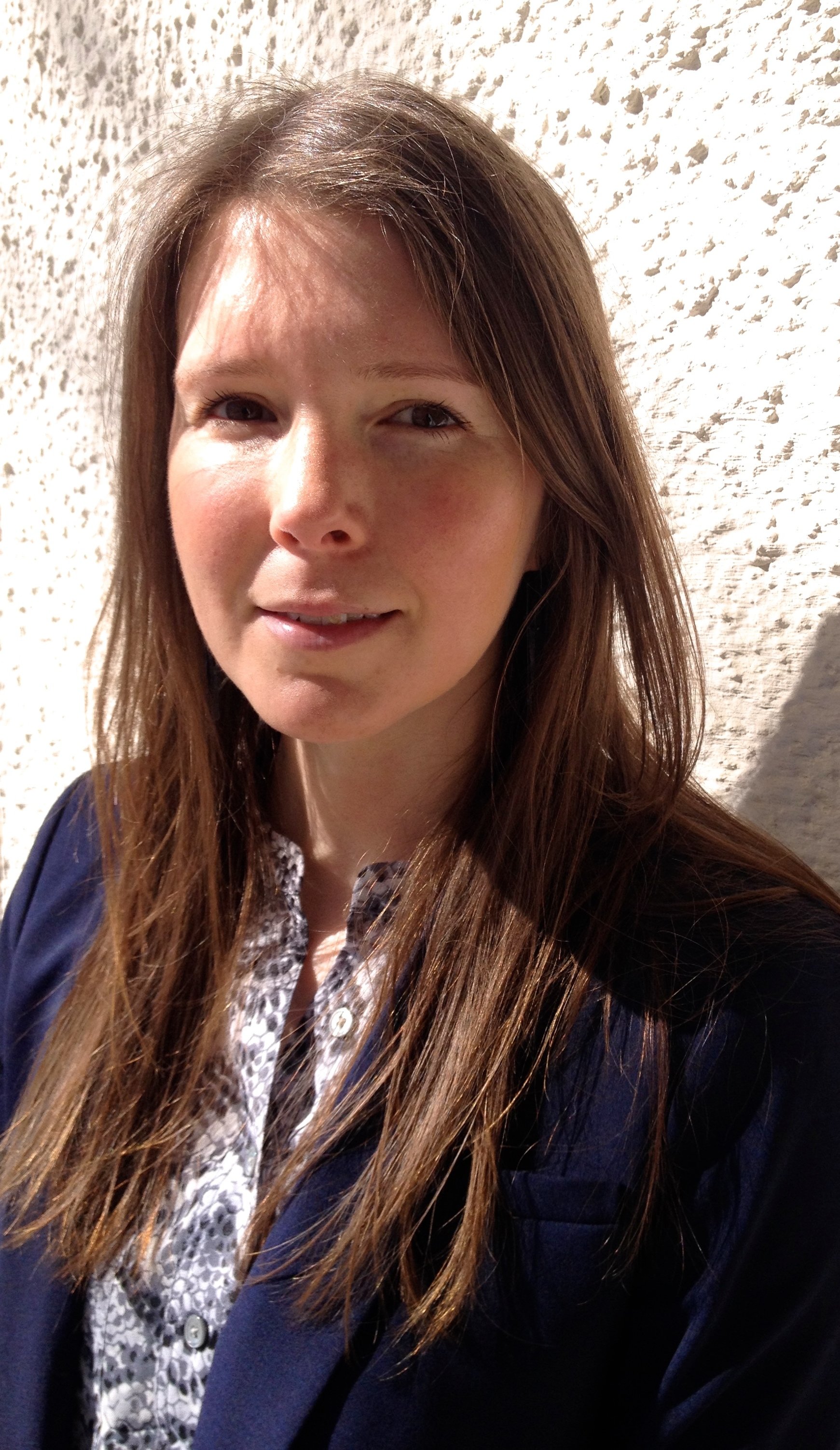 My research focuses on Western warfare and violence and draws across the fields of political geography, critical security studies, and science and technology studies. My dissertation, Lethal Surveillance: Drones and the Geo-History of Modern War, examined the history of drone technology from the start of the 20th century to the present in order to understand the significance of the increasing centrality of drones to current American military engagements and security practices more generally. Currently, I am developing one of the central arguments of my dissertation - that the drone reflects, as well as must be understood through, intersecting histories of modern scientific development and Western violence. Drawing on and expanding archival research I already conducted, I am focusing in more detail on the first period of my dissertation and look closely at drones developed by the UK in the 1920s, 1930s, and 1940s. In particular, I am looking at British scientific tests of the "Larynx" drone, some of which were conducted in Iraq at the end of the 1920s. The aim of examining this time period is to better understand the relationship between scientific development and Western governance and violence that are increasingly linked today in the practice of lethal surveillance and to place these within the context of emerging strategies of air power. Furthermore, the case of the Larynx Iraq tests points to a potential early thread of colonial governance, air power, and control in the longer history of drone development that can inform our current thinking about drone strikes in Afghanistan, Iraq, and elsewhere. I am currently preparing an article for submission titled "Manhunts and Metadata: Liberal Violence, the Body, and Targeted Killing."
My research focuses on Western warfare and violence and draws across the fields of political geography, critical security studies, and science and technology studies. My dissertation, Lethal Surveillance: Drones and the Geo-History of Modern War, examined the history of drone technology from the start of the 20th century to the present in order to understand the significance of the increasing centrality of drones to current American military engagements and security practices more generally. Currently, I am developing one of the central arguments of my dissertation - that the drone reflects, as well as must be understood through, intersecting histories of modern scientific development and Western violence. Drawing on and expanding archival research I already conducted, I am focusing in more detail on the first period of my dissertation and look closely at drones developed by the UK in the 1920s, 1930s, and 1940s. In particular, I am looking at British scientific tests of the "Larynx" drone, some of which were conducted in Iraq at the end of the 1920s. The aim of examining this time period is to better understand the relationship between scientific development and Western governance and violence that are increasingly linked today in the practice of lethal surveillance and to place these within the context of emerging strategies of air power. Furthermore, the case of the Larynx Iraq tests points to a potential early thread of colonial governance, air power, and control in the longer history of drone development that can inform our current thinking about drone strikes in Afghanistan, Iraq, and elsewhere. I am currently preparing an article for submission titled "Manhunts and Metadata: Liberal Violence, the Body, and Targeted Killing."
Tel: 603-646-2267
Fax: 603-646-1601
Email: katharine.h.kindervater@dartmouth.edu
Mailing Address:
Dartmouth College
Geography Department
6017 Sherman Fairchild Hall
Nisha Kommattam
Postdoctoral Fellow, Leslie Center for the Humanities
Nisha Kommattam is the inaugural postdoctoral fellow at the Leslie Center for the Humanities. Her research focuses on Gender and Sexuality in South Asia, as well as Modern South Indian Literature(s) and Cultural Studies. Current projects include an article on the pathologization of non-normative sexualities in Malayalam literature, several literary translations and a monograph on narratives of female same-sex desire in Southern India. She was trained at the University of Cologne, Germany and holds a PhD in Modern South Asian Studies as well as Master's degrees in English Literature and Philosophy. Prior to joining Dartmouth College, she taught in the Department of South Asian Languages and Civilizations at the University of Chicago.
At the Leslie Center for the Humanities, Nisha co-ordinates the "Big Names" author series featuring guests speakers such as Michael Oondatje, Zadie Smith and Jhumpa Lahiri, the "Humanities 3.0" series, the quarterly "Meet-the-Publishers" workshop for junior faculty and the newly founded "Students for the Humanities" group on campus. She has also just started a South Asia Faculty Workgroup, hosting scholars from diverse disciplines of the Humanities and Social Sciences who share a research interest in South Asia.
Forthcoming Publications include:
• Translations of Malayalam Short Stories, (Title TBA) Anthology of Queer Writing from Kerala, Eds. T. Muraleedharan and Meena T. Pillai. OUP India 2016.
nisha.kommattam@dartmouth.edu
Yvonee Kwan
Postdoctoral Fellow in the Society of Fellows, Department of Sociology
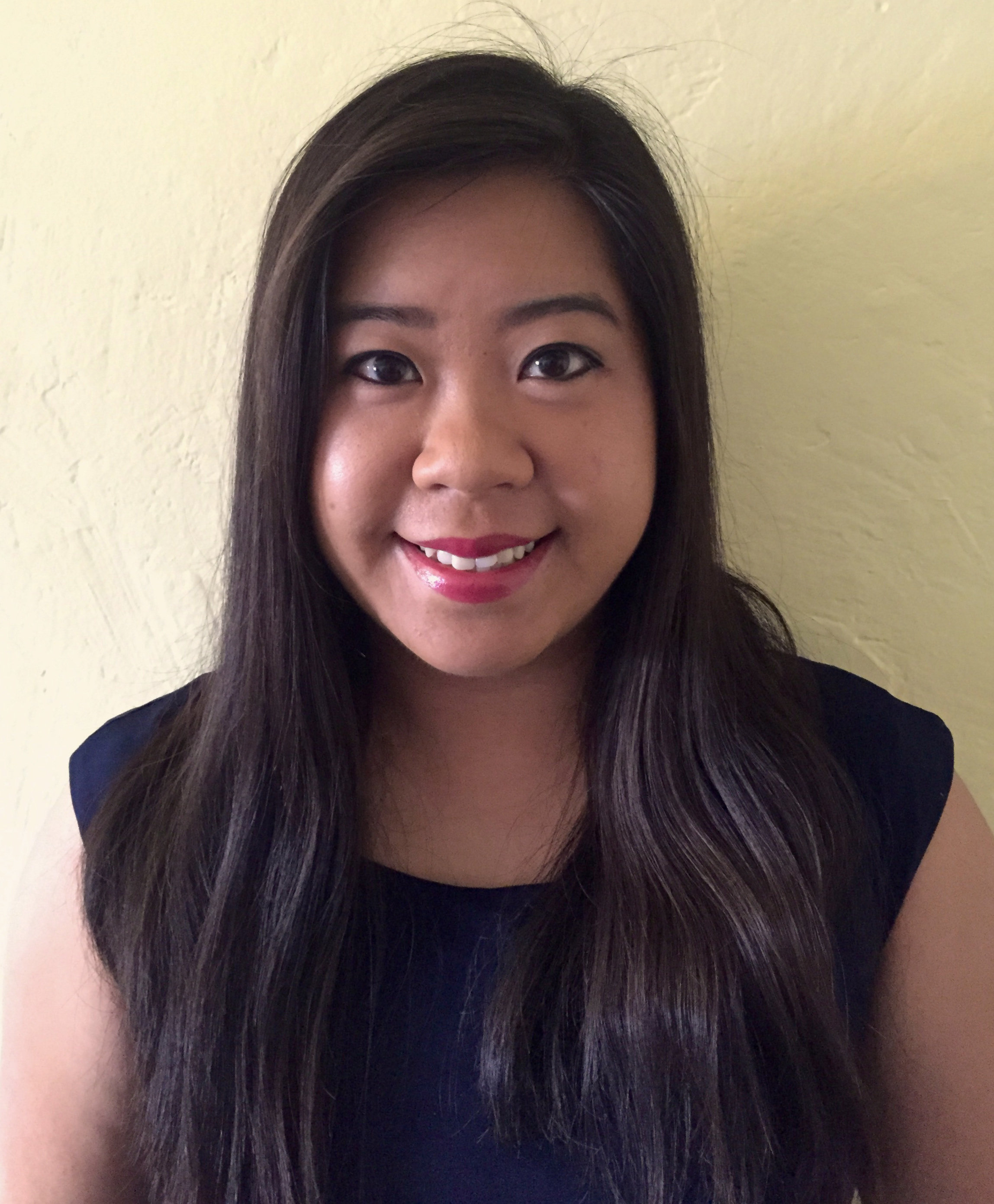 My dissertation, "Encountering Memory and Trauma: Transgenerational Transmission of Trauma in Cambodian Americans," addresses the ways in which trauma and violent histories may be transmitted from one generation to the next, particularly via the older generation's use of narrative fragments, caesuras, and/or silences. It widens the sociological understanding of subjecthood and affect—not just via theoretical interventions but through a mixed methods, data driven analysis of interviews and surveys with Cambodian American college students and graduates from California.
My dissertation, "Encountering Memory and Trauma: Transgenerational Transmission of Trauma in Cambodian Americans," addresses the ways in which trauma and violent histories may be transmitted from one generation to the next, particularly via the older generation's use of narrative fragments, caesuras, and/or silences. It widens the sociological understanding of subjecthood and affect—not just via theoretical interventions but through a mixed methods, data driven analysis of interviews and surveys with Cambodian American college students and graduates from California.
This study explicates how refugee subjecthood (i.e., the quality of being a refugee subject) does not require discursive utterance or identity naming but instead revolves around an affect of trauma—the positive, negative, and neutral feelings, emotions, and sensations that are elicited in the daily lives of refugee subjects. Furthermore, instead of just theorizing that trauma reaches beyond the individual who has suffered some sort of catastrophic event, this research provides evidence that better informs individual-based medical and psychological research. By explicating trauma as a formation, I show how trauma is neither stable nor discrete but is always subject to discursive and affective rearticulation. Trauma is therefore inherently social and collective because it references structures and people at the macro- (e.g., laws, policies, and war), meso- (e.g., community and groups), and micro- (e.g., families and individuals) levels. Lastly, by using critical feminist epistemologies and a critical race framework, this research speaks to a specificity of the Southeast Asian diaspora/refugee experience—one that is raced, classed, and gendered.
"Inequalities Reinterpreted: The Importance of Affect for Understanding Inequality" with Christie McCullen, Kirsten Rudestam, and Dana Takagi (in progress article manuscript)
"Cambodian American Families: Transgenerational Collective Memory and Mental Health" (in progress article manuscript)
Email: yvonne.y.kwan@dartmouth.edu
Office: Society of Fellows, 40 College Street (aka "White Church")
Mailing: 6104 Silsby Hall, Hanover, NH 03755
Phone: (603) 646-1091
Kirstyn Leuner
Postdoctoral Fellow, The Neukom Institute for Computational Science and Dept. of English
Board Member and webmaster, British Women Writers Association
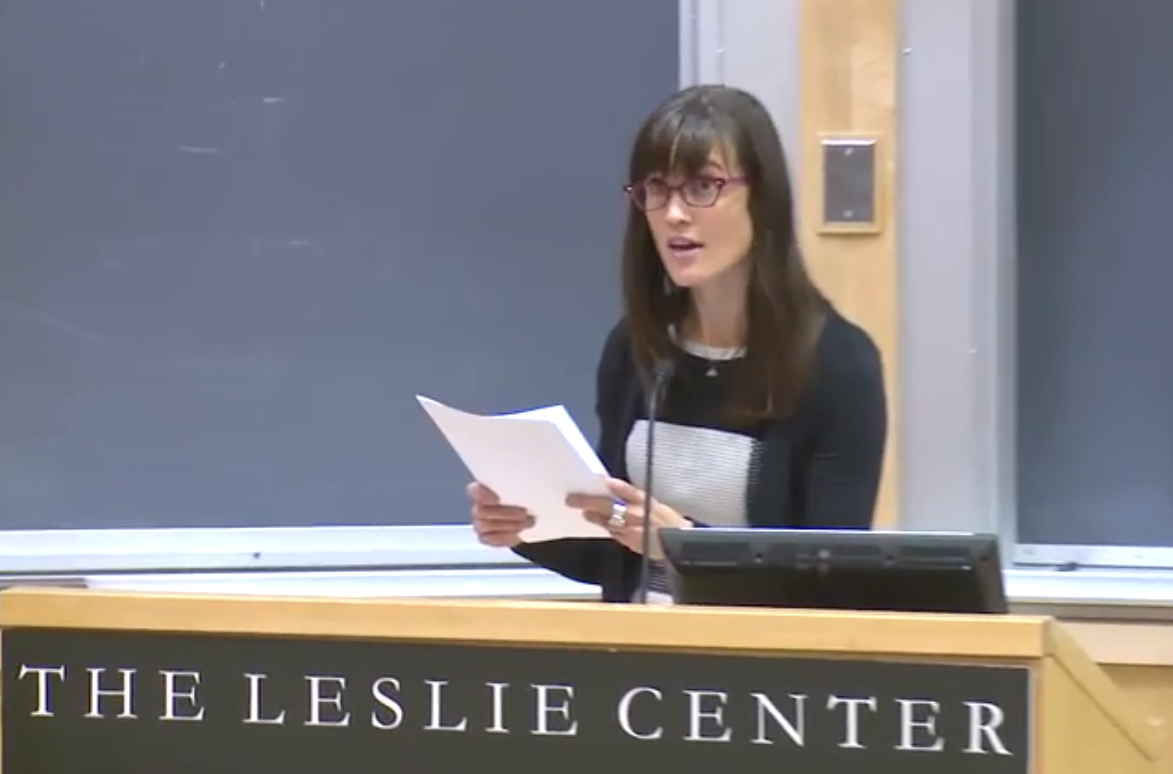 Kirstyn is a digital humanist who specializes in Romantic-era and nineteenth-century literature and media studies. She directs and co-edits the Stainforth Library of Women's Writing, a digital archive under construction that will provide an electronic edition of Francis Stainforth's private library, the largest private library of women's writing collected in the nineteenth century. When complete, this digital archive of 6,000 volumes will help scholars answer questions about the circulation, value, organization, and collection of women's writing dating back to the 14th century, much of which has been historically overlooked. The Stainforth project recently won an Innovative Seed Grant. Additionally, Kirstyn is working on a book project that explores how nineteenth-century authors integrate the 1822 invention of the Diorama into their poetry and prose. She teaches a course she developed for the Department of English called "Women's Literature and Technologies of Transmission."
Kirstyn is a digital humanist who specializes in Romantic-era and nineteenth-century literature and media studies. She directs and co-edits the Stainforth Library of Women's Writing, a digital archive under construction that will provide an electronic edition of Francis Stainforth's private library, the largest private library of women's writing collected in the nineteenth century. When complete, this digital archive of 6,000 volumes will help scholars answer questions about the circulation, value, organization, and collection of women's writing dating back to the 14th century, much of which has been historically overlooked. The Stainforth project recently won an Innovative Seed Grant. Additionally, Kirstyn is working on a book project that explores how nineteenth-century authors integrate the 1822 invention of the Diorama into their poetry and prose. She teaches a course she developed for the Department of English called "Women's Literature and Technologies of Transmission."
Follow her research at http://kirstynleuner.wordpress.com and @KLeuner on Twitter.
The Stainforth Library of Women's Writing project blog: http://libpress.colorado.edu/stainforth/
http://kirstynleuner.wordpress.com
Twitter: @KLeuner
Mailing: English Dept. & The Neukom Institute
014 Sanborn, HB 6032
Dartmouth College
Hanover, NH 03755
kirstyn.j.leuner@dartmouth.edu
Emily Klancher Merchant
Postdoctoral Fellow, Neukom Institute for Computational Science and Departments of History and Geography
 Emily Klancher Merchant is a postdoctoral fellow in the Neukom Institute for Computational Science, pursuing research in the history of science, technology, and global politics in the twentieth century. She recently completed a Ph.D. in History and a graduate certificate in Science, Technology, and Society (STS) at the University of Michigan, with a dissertation titled "Prediction and Control: Global Population, Population Science, and Population Politics in the Twentieth Century" (2015). This project draws on archival research, oral history interviews, training and research experience in demography, and computational analysis of demography literature. The computational component can be viewed at www.emilyklancher.com/digdemog. Emily is currently revising her dissertation for publication as a monograph and a series of articles. These works examine how demographic models constructed women as agents of reproduction and targets of population control, and trace the separate development of systemic contraceptive methods for women (rather than men or couples) in the global north and global south.
Emily Klancher Merchant is a postdoctoral fellow in the Neukom Institute for Computational Science, pursuing research in the history of science, technology, and global politics in the twentieth century. She recently completed a Ph.D. in History and a graduate certificate in Science, Technology, and Society (STS) at the University of Michigan, with a dissertation titled "Prediction and Control: Global Population, Population Science, and Population Politics in the Twentieth Century" (2015). This project draws on archival research, oral history interviews, training and research experience in demography, and computational analysis of demography literature. The computational component can be viewed at www.emilyklancher.com/digdemog. Emily is currently revising her dissertation for publication as a monograph and a series of articles. These works examine how demographic models constructed women as agents of reproduction and targets of population control, and trace the separate development of systemic contraceptive methods for women (rather than men or couples) in the global north and global south.
emily.r.merchant@dartmouth.edu
603-646-2147
412 Carson Hall
Garrett Dash Nelson
Postdoctoral Fellow, Society of Fellows and Department of Geography
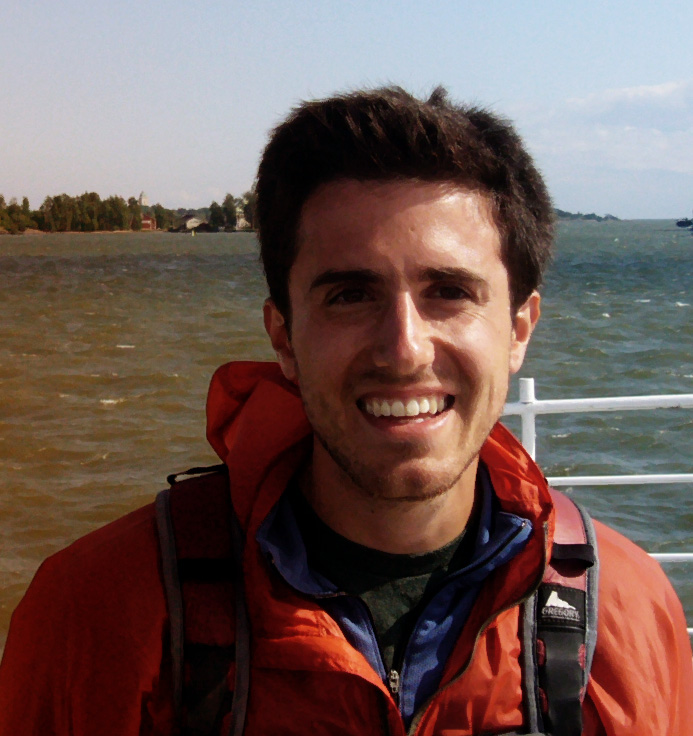 Garrett Nelson is a geographer whose work focuses on the history of landscape planning in the United States. His dissertation, "A Place Altogether: Planning and the Search for Unit Landscapes, 1816–1956," takes a historical approach to the question of what size areas are appropriate to plan as a whole. By following debates among planners, scientists, social reformers, and politicians about how to evaluate unity and diversity in spatial terms, Nelson examines both the institutional and the moral consequences of calling some part of the Earth's surface a "single" place. His work explores how the different kinds of "unit" geographies in which planners operate—from neighborhoods and towns to metropolises and eco-regions—bear the traces of socially-contested processes of inclusion and exclusion. More broadly, Nelson is interested the ways that groups come to organize themselves geographically, and how these patterns trace onto ideological arguments about justice, community, state power, and environmental regulation.
Garrett Nelson is a geographer whose work focuses on the history of landscape planning in the United States. His dissertation, "A Place Altogether: Planning and the Search for Unit Landscapes, 1816–1956," takes a historical approach to the question of what size areas are appropriate to plan as a whole. By following debates among planners, scientists, social reformers, and politicians about how to evaluate unity and diversity in spatial terms, Nelson examines both the institutional and the moral consequences of calling some part of the Earth's surface a "single" place. His work explores how the different kinds of "unit" geographies in which planners operate—from neighborhoods and towns to metropolises and eco-regions—bear the traces of socially-contested processes of inclusion and exclusion. More broadly, Nelson is interested the ways that groups come to organize themselves geographically, and how these patterns trace onto ideological arguments about justice, community, state power, and environmental regulation.
http://people.matinic.us/garrett
Twitter: @en_dash
Garrett.G.D.Nelson@Dartmouth.edu
Tatiana Reinoza
Postdoctoral Fellow in the Society of Fellows, Department of Art History
 Tatiana Reinoza is an art historian and independent curator who specializes in U.S. Latinx visual art. She is currently working on a book manuscript that seeks to understand latinidad (latinoness) from the perspective of graphic art and its affiliated sites of production. Through a focus on the social lives of printed objects (mainly posters and prints), her work draws attention to the ways that print culture generates counterpublics, alternative political communities, and subjectivities that resist exclusion. Her experiences as a first-generation immigrant from El Salvador inform a second research project, Restaging Invisible Violence: Imagining the Central American Diaspora. This manuscript examines how the idea of the diaspora is made up of images related to histories of violence—civil wars, gangs, narco-terror, refugee children, undocumented workers—and how image-makers reinforce, counter, and expand the visibility of this community, now the third largest Latino group in the U.S.
Tatiana Reinoza is an art historian and independent curator who specializes in U.S. Latinx visual art. She is currently working on a book manuscript that seeks to understand latinidad (latinoness) from the perspective of graphic art and its affiliated sites of production. Through a focus on the social lives of printed objects (mainly posters and prints), her work draws attention to the ways that print culture generates counterpublics, alternative political communities, and subjectivities that resist exclusion. Her experiences as a first-generation immigrant from El Salvador inform a second research project, Restaging Invisible Violence: Imagining the Central American Diaspora. This manuscript examines how the idea of the diaspora is made up of images related to histories of violence—civil wars, gangs, narco-terror, refugee children, undocumented workers—and how image-makers reinforce, counter, and expand the visibility of this community, now the third largest Latino group in the U.S.
Her research was awarded one of six Inter University Program for Latino Research Mellon Fellowships in a national humanities competition. Among her publications, she is currently co-editing a dossier on Printed Matters for the journal Aztlán. Curatorial projects are an integral part of her research practice and have been featured at various venues including the Snite Museum of Art and the Benson Latin American Collection.
Tatiana.Reinoza@Dartmouth.edu

